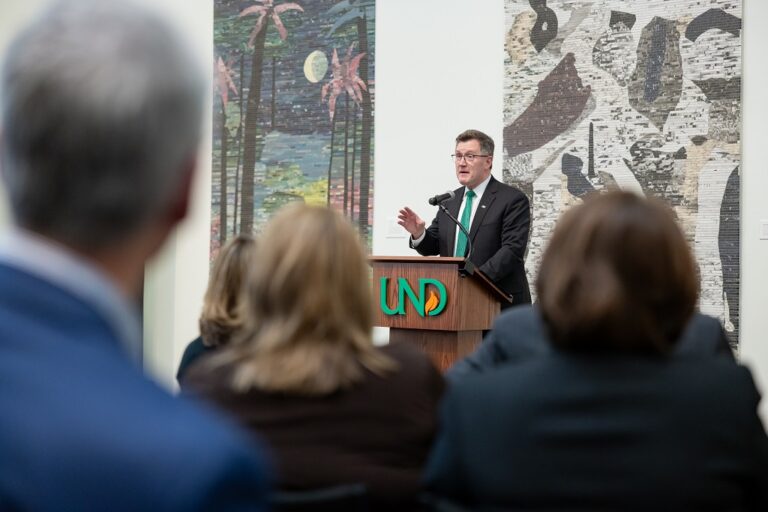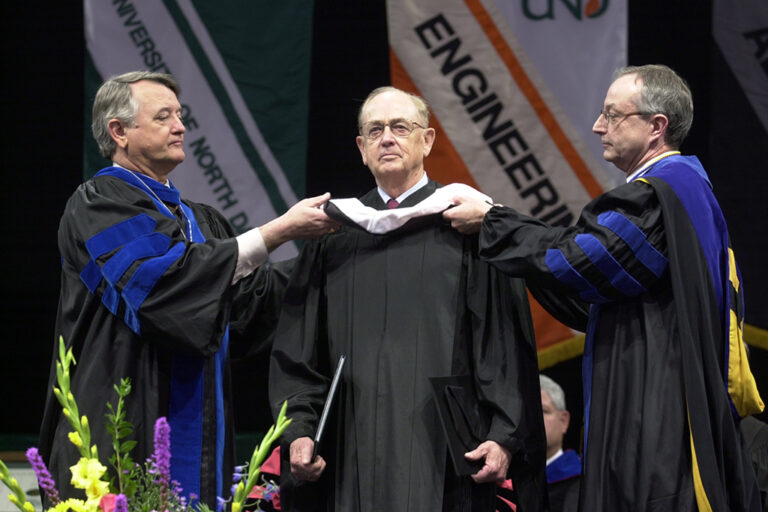Diana D’Amico Pawlewicz talks ‘Blaming Teachers’ with Randi Weingarten
New podcast from Politics and Prose Bookstore features UND author’s debut book, conversation with education labor leader
In her recent podcast conversation with Diana D’Amico Pawlewicz, Randi Weingarten, president of the 1.7-million-member American Federation of Teachers, remembers reading one of the UND assistant professor’s Washington Post op-eds.
It was practically a spit-out-your-coffee moment, Weingarten suggests.
“I remember reading the op-ed … and I’m like, ‘Who wrote this? Oh my god,’” Weingarten says in the podcast.
That’s because the op-ed spoke so eloquently to the huge contradictions teachers face in the course of their work: “You could see any teacher saying, ‘Oh yeah, I go through this craziness all the time – this surrealness of being both reviled and revered, of having to figure out how to do everything and then being blamed when you can’t do everything,’” Weingarten continues.
“And yet not getting paid for it, and not getting the stature or status (that such professionals deserve). And yet, everybody knows that without teachers, we wouldn’t have education, and we wouldn’t have the foundation for growth.”
The conversation between the labor leader and the UND author and educator took place on a unique national platform on Aug. 31. That’s when Weingarten and D’Amico Pawlewicz were featured guests in an online conversation that was part of the P&P Live! series.
The series is hosted by Politics and Prose Bookstore, a nationally prominent bookstore in Washington, D.C.
In the above video of the conversation, Weingarten and D’Amico Pawlewicz talk extensively about K-12 education in general and D’Amico Pawlewicz’s new book, “Blaming Teachers: Professionalization Policies and the Failure of Reform in American History,” in particular. The book was published Aug. 14 by Rutgers University Press.
As noted in a recent story in UND Today, D’Amico Pawlewicz’s book “explores how professionalization reforms, from the 1800s to the present day, subverted rather than enhanced public school teachers’ professional legitimacy. It’s ‘a Sisyphean irony,’ as the book describes: ‘Superficially, professionalism connotes authority, expertise and status, but public school teachers never gained from the so-called professionalization initiatives that surrounded them.’”


